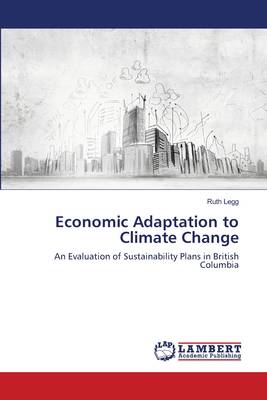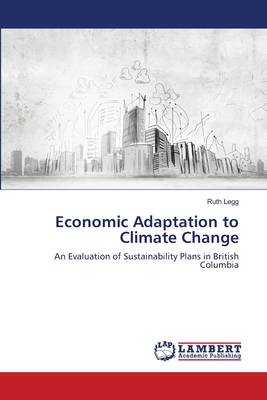
- Afhalen na 1 uur in een winkel met voorraad
- Gratis thuislevering in België vanaf € 30
- Ruim aanbod met 7 miljoen producten
- Afhalen na 1 uur in een winkel met voorraad
- Gratis thuislevering in België vanaf € 30
- Ruim aanbod met 7 miljoen producten
Zoeken
Economic Adaptation to Climate Change
An Evaluation of Sustainability Plans in British Columbia
Ruth Legg
Paperback | Engels
€ 39,45
+ 78 punten
Omschrijving
This study assesses how municipalities and regional districts in British Columbia (BC) are incorporating economic adaptation to climate change in their sustainability plans. A literature review of the economic impacts of climate change in BC is used to inform an evaluation protocol for assessing the 26 local government sustainability plans in BC. Each item in the protocol is assigned a score of 0 if it is absent from the plan, 1 if it is mentioned in the plan, and 2 if it is included with depth in the plan. The protocol has four categories: facts, goals, policies, and actions. The protocol evaluation results show that 10% of the municipalities and regional districts in BC are planning well for the economic impacts of climate change, in at least one category. It is not surprising that the strongest areas of the plans fall in the policy category, as these are typically addressed in the well-established Official Community Plan planning process. The weakest areas are typically either new aspects of planning not well established in practice or controversial. The results of this study are translated into clear recommendations for BC local governments.
Specificaties
Betrokkenen
- Auteur(s):
- Uitgeverij:
Inhoud
- Aantal bladzijden:
- 60
- Taal:
- Engels
Eigenschappen
- Productcode (EAN):
- 9783659500510
- Verschijningsdatum:
- 13/12/2013
- Uitvoering:
- Paperback
- Formaat:
- Trade paperback (VS)
- Afmetingen:
- 152 mm x 229 mm
- Gewicht:
- 99 g

Alleen bij Standaard Boekhandel
+ 78 punten op je klantenkaart van Standaard Boekhandel
Beoordelingen
We publiceren alleen reviews die voldoen aan de voorwaarden voor reviews. Bekijk onze voorwaarden voor reviews.











